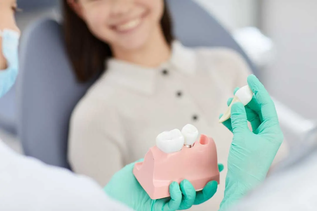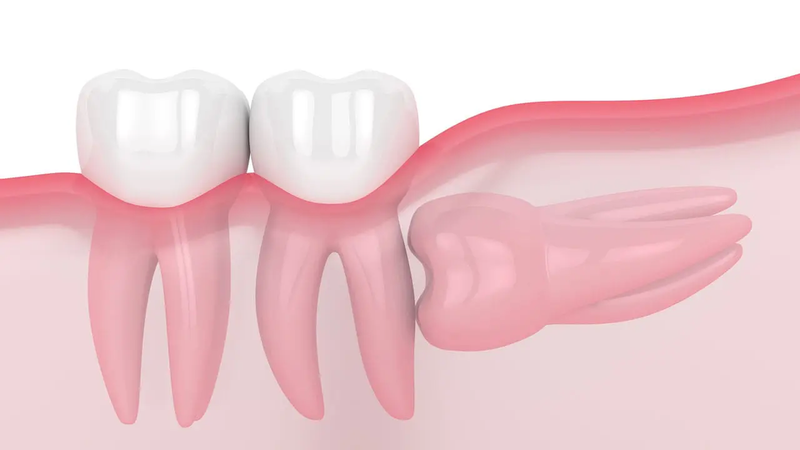
Understanding Wisdom Teeth: Their Purpose and Common Issues
Wisdom teeth, also known as third molars, have long been a topic of curiosity and concern among dental patients.
These late-blooming molars often make their presence known during young adulthood, sometimes causing discomfort and requiring removal.
Purpose of Wisdom Teeth
Why do we have wisdom teeth? Wisdom teeth, designated as third molars, served a crucial role in the diets of early humans.
These ancestors had a diet predominantly consisting of tough and coarse foods, such as raw plants and uncooked meats. The extra molars were essential for efficient chewing and grinding, allowing early humans to extract maximum nutrition from their diets.
Position in the Dental Arch
Wisdom teeth are aptly named, as they are the last set of molars to emerge in the dental arch.
Typically, when it comes to how many wisdom teeth are there, adults have three sets of molars, with the third set being the wisdom teeth. Their location at the back of the mouth makes them valuable for chewing food thoroughly.
The Anatomy of Wisdom Teeth
Most individuals have four wisdom teeth, two in the upper jaw (maxillary third molars) and two in the lower jaw (mandibular third molars). When it comes to what teeth are the wisdom teeth, where the wisdom teeth are located is at the farthest reaches of the dental arch, behind the second molars.
Wisdom teeth typically begin to develop in the late teenage years and early twenties. However, their eruption can vary widely among individuals. Some may experience trouble-free eruption, while others may encounter complications, such as impaction.
The Ideal Function of Wisdom Teeth
Why do we get wisdom teeth? In an ideal scenario, wisdom teeth contribute to proper dental occlusion and function. They aid in chewing and grinding tough foods, making them an integral part of efficient mastication.
This function aligns with their evolutionary purpose, ensuring optimal nutritional extraction from a diet that once relied heavily on unprocessed foods.
Common Issues Associated with Wisdom Teeth
Impacted Wisdom Teeth
When wisdom teeth fail to fully emerge from beneath the gum line due to spatial constraints or incorrect positioning, they confront a common obstacle. This situation is not uncommon and can trigger a range of issues.
There are two main types of impaction:
- Soft Tissue Blockade: Arises when the wisdom tooth is partially veiled by gum tissue, complicating cleansing and heightening the peril of infection.
- Osseous Impediment: This variation transpires when the wisdom tooth is either partially or entirely encased within the jawbone. Osseous blockades can lead to more severe complications.
Overcrowding and Misalignment
Wisdom teeth can exacerbate overcrowding and instigate misalignment among neighbouring teeth. As these molars endeavour to locate their spot within an already cramped dental arch, they may displace other teeth from their proper alignment.
This misalignment may cause enduring consequences for comprehensive dental well-being, potentially necessitating orthodontic intervention.
Infection and Gum Disease
Because of their deep-seated locale in the posterior of the oral cavity, wisdom teeth remain susceptible to inflammation and gum maladies.
In scenarios where they partially emerge or confront impediments, they foster secluded pockets conducive to bacterial accumulation, culminating in inflammation and infection. Symptoms might encompass pain, swelling, and halitosis. If untreated, this can lead to more severe dental complications.
Cysts and Tumours
Though relatively infrequent, wisdom teeth may occasionally give rise to cysts or tumours. These anomalous growths might linger asymptomatic in their embryonic stages, eluding detection without periodic dental assessments.
Nevertheless, if left unattended, cysts and tumours associated with wisdom teeth symptoms can inflict substantial harm upon the jawbone and the adjoining structures. Timely identification stands as a pivotal facet of efficacious treatment.

The Timing of Wisdom Teeth Eruption
The typical age span for wisdom teeth emergence encompasses late adolescence and early adulthood, characteristically transpiring between 17 and 25 years of age. Nevertheless, substantial variances persist among individuals.
A few may experience precocious eruption, while others might undergo belated emergence, or even remain devoid of wisdom teeth entirely. Untimely or early appearances can usher in predicaments, engendering potential dental complications warranting prompt attention.
The Importance of Regular Dental Check-ups
Given the potential complications associated with wisdom teeth, routine dental examinations are essential when determining do wisdom teeth have to be removed.
Dentists can monitor the development and eruption of wisdom teeth and identify potential issues before they become severe. Early intervention can prevent discomfort, infection, misalignment, and other complications associated with these molars.
Wisdom Teeth Removal at North York Smile Centre
At North York Smile Centre, we understand the concerns and discomfort that can arise from wisdom teeth problems. Our experienced team of dental professionals offers expert wisdom teeth removal services to ensure a smooth and painless process. Benefits of choosing North York Smile Centre for wisdom teeth removal include:
- Expertise: Our dental team has extensive experience in performing wisdom teeth extractions, ensuring a safe and efficient procedure.
- State-of-the-Art Technology: We utilize the latest dental technology and techniques to provide optimal care for our patients.
- Comfort and Care: Your comfort is our priority. We offer sedation options to ease any anxiety and ensure a painless experience.
- Post-Operative Support: Our team provides thorough post-operative care instructions to promote a speedy and comfortable recovery.
Ultimately, understanding what are wisdom teeth and what to expect wisdom teeth removal, their anatomy, and when should wisdom teeth be removed is essential for maintaining optimal dental health. Regular dental check-ups play a crucial role in monitoring the development of wisdom teeth and addressing any wisdom teeth symptoms or concerns promptly.
When wisdom teeth removal is necessary, North York Smile Centre is here to provide expert care and support throughout the process, ensuring your oral health remains in excellent condition.

